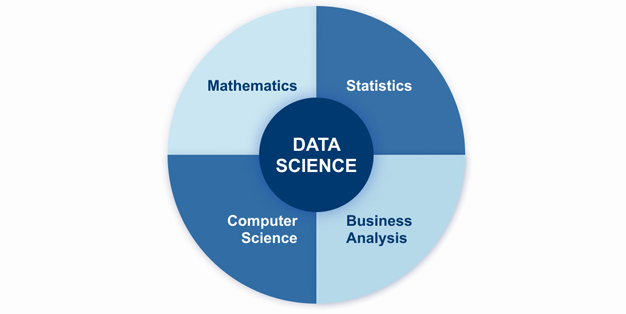
The development of any business requires a careful examination of several hypotheses and interconnected factors. But with data science, this complicated task becomes simplified.
So what is data science?
Data science is a discipline that provides guidelines on analyzing and interpreting massive swaths of data. And most recently, data science has become an integral part of business strategies. Companies rely on data science service providers in machine learning, Big Data, deep learning, and artificial intelligence.
In this article, we will go through a basic introductory tutorial of the working principle of data science. You will also discover why your business will benefit from data science initiatives.
Table of Contents
How does data science work?
Data science relies on man-made algorithms created by a data scientist or AI developer. These algorithms analyze the data to come up with predictions and behavioral models based on the available information.
For example, the results from the evaluation cannot be predetermined. Else, the results obtained from the algorithm are largely false.
Data refers to a system of trackable and monitorable facts. It focuses on perceivable information collected from a given source or multiple sources — a business or team of employees. And from the data, a machine learning application can generate a predictive model to track the changes.
The science aspect combines mathematics, statistics, computer science, and data processing to come up with a series of interpretations for the acquired information.
Data science myths
Here are some of the most common data myths floating around:
1. Artificial intelligence is unpredictable, and as such cannot be trusted.
Verdict: Partially true. Artificial intelligence algorithms only make predictions. The responsibility to make decisions rests on humans.
2. Data algorithms cannot benefit businesses.
Verdict: False. Advanced data algorithms can give a business a significant competitive advantage.
3. Machine learning is too expensive.
Verdict: Mostly false. Machine learning might be expensive, but it is cheaper than hiring people to monitor and process the data round the clock.
4. Artificial intelligence needs data to function but the source is limited.
Verdict: False. You can obtain large amounts of data from a customer relationship management (CRM) system.
How is data science beneficial to businesses?
Data science is the bedrock of most business strategies. So, it is safe to assume that most businesses cannot function smoothly without data initiatives. Let’s consider some of the benefits of data science for businesses.
1. Advertising
Targeted marketing and location-based services focus on data science to determine the audience demographics. And with this information, they can structure their marketing campaigns to make massive returns and conversions.
2. Product recommendation
Data science is useful to companies who offer similar services. For example, Netflix and YouTube rely on user data to recommend and suggest videos to users.
3. Personalization
With the help of deep learning technologies, a company can personalize the user experience to every customer. Since deeper learning focuses on mimicking customer behavior, the suggestions are more relevant to the client’s needs.









